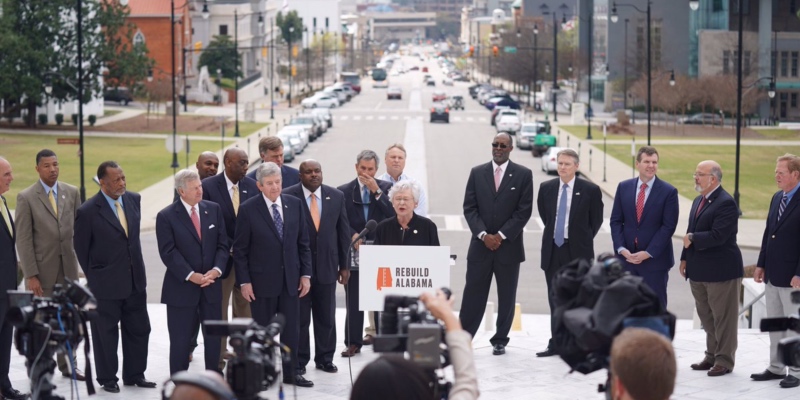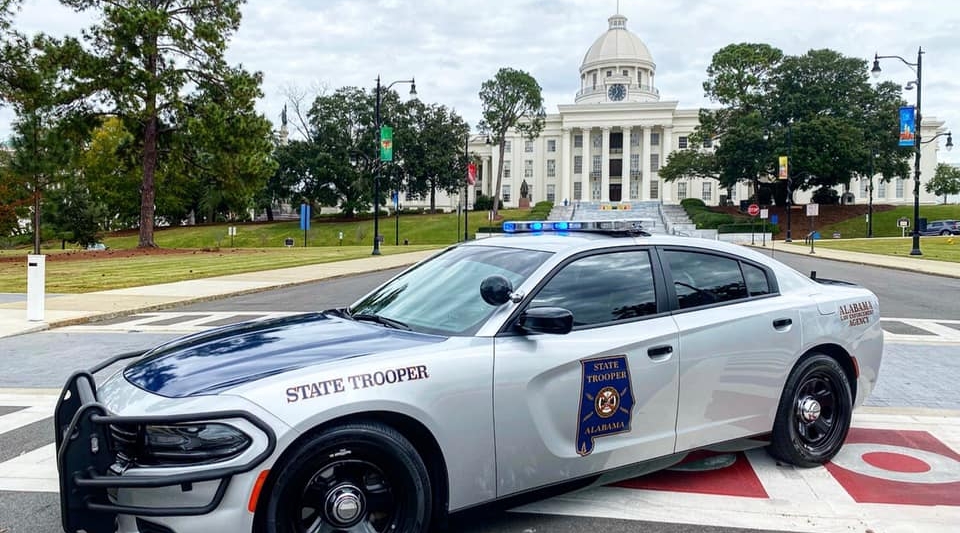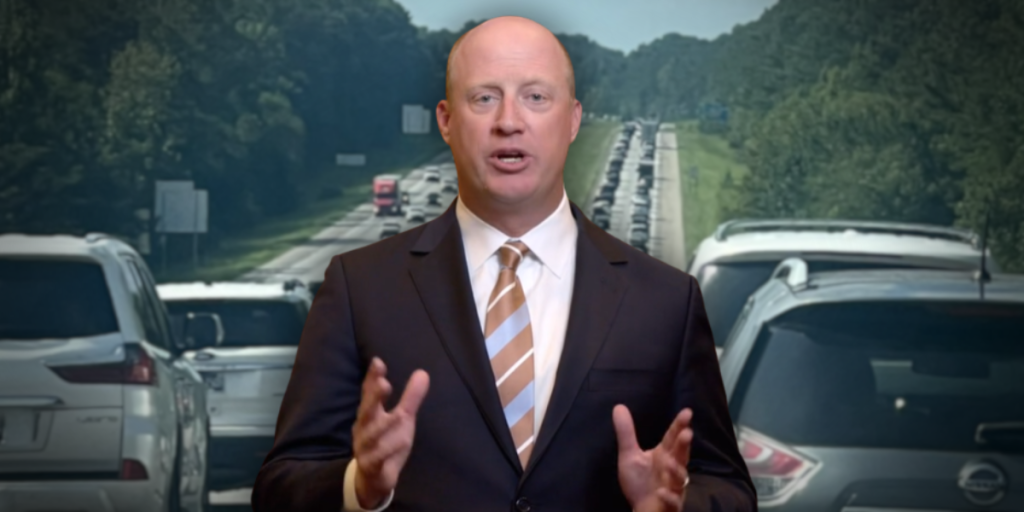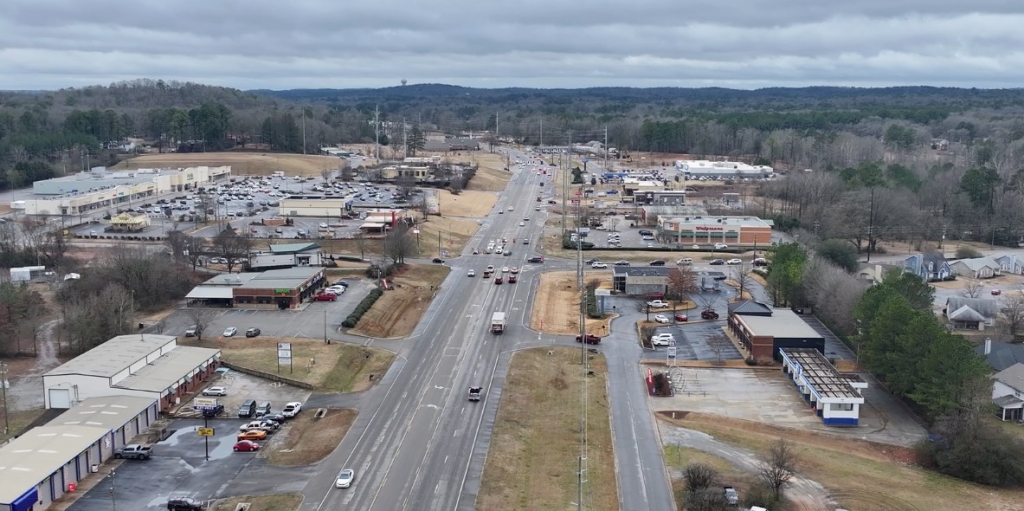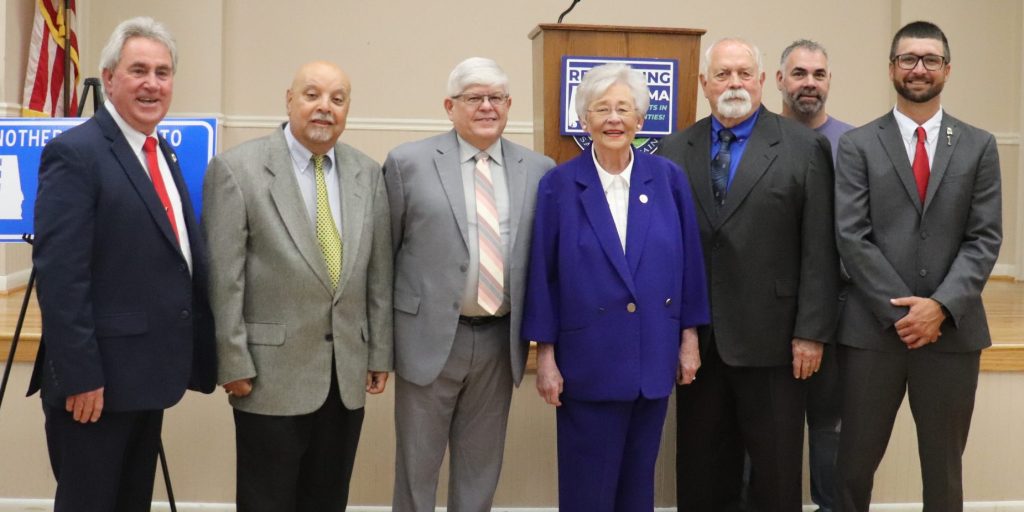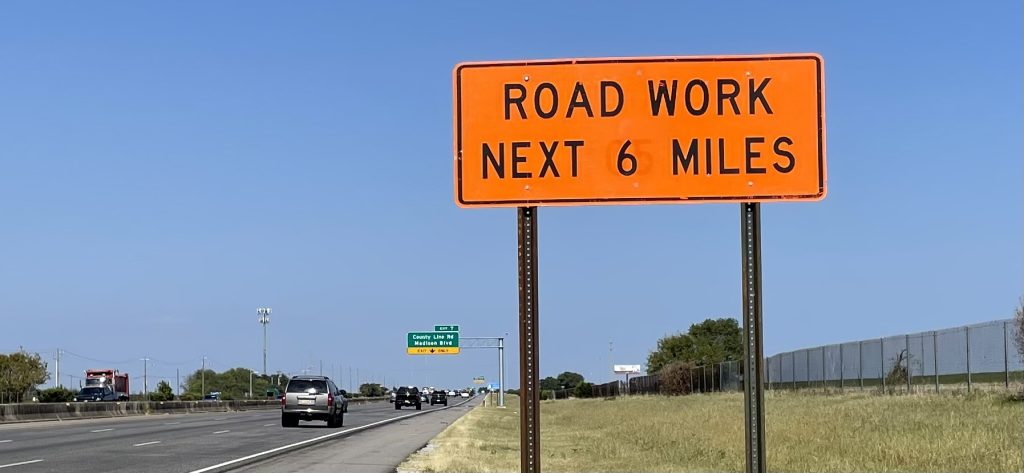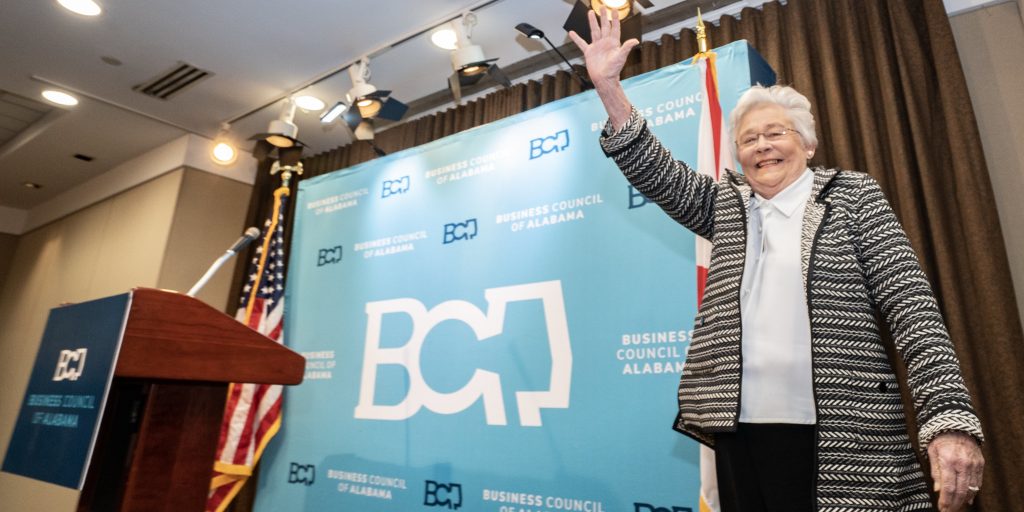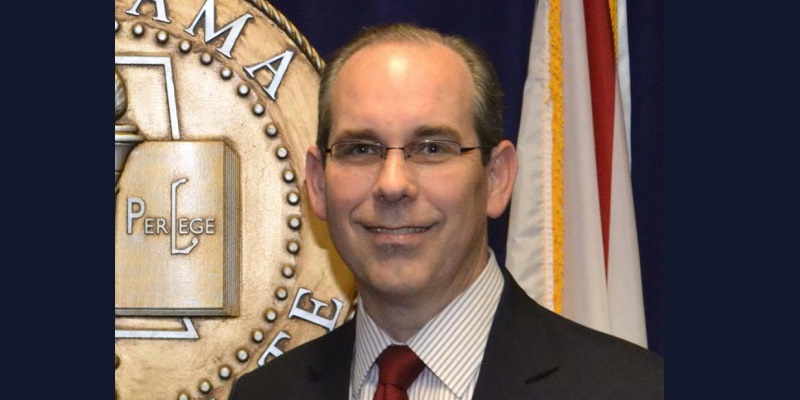MONTGOMERY — Shortly after a Friday afternoon press conference in which prominent city and county leaders from across the state spoke in support of Governor Kay Ivey’s Rebuild Alabama plan, the governor’s office released the text of the bill to the public.
The just-finalized bill, which was made available to state legislators earlier in the day, has been released in time to be studied before the start of the 2019 regular Alabama legislative session, which convenes Tuesday at noon. State Rep. Bill Poole (R-Tuscaloosa) will be filing the bill.
A wide cross-section of Rebuild Alabama proponents was on display at the press conference, including Ivey’s top opponents from the 2018 election cycle: Mayor Tommy Battle (R-Huntsville) and Mayor Walt Maddox (D-Tuscaloosa).
Battle said, “The whole process of this is to add to the economy of the state of Alabama. Governor, thank you for taking this up – it’s not an easy thing to take on, but we know what’s good for Huntsville is good for Mobile is good for Jasper is good for Auburn/Opelika. As we take care of this infrastructure, we add to the economy of the state, and we make the state stronger.”
Mobile Mayor Sandy Stimpson’s firm support of the governor’s plan is also especially significant, considering his and his family’s longtime leadership in the state’s forestry industry.
At the press conference, Stimpson joined Battle, Maddox and Montgomery Mayor Todd Strange in thanking Ivey, emphasizing, “This is a generational opportunity to do something that’s desperately needed.”
Paraphrasing something Ivey has previously said, Strange said, “We need to do the right thing – this is it – we need to do it the right way – and this is it – and we need to do it right now. Time is of the essence to get this done.”
Strange’s emphasis on addressing the state’s infrastructure needs now was a key focus of representatives of the Association of County Commissioners of Alabama (ACCA) at the press conference, too.
ACCA President Tony Cherry, who is a commissioner in Choctaw County, remarked, “It’s going to take all 67 counties to get this done.”
The ACCA leadership is on the steps on the State Capitol this afternoon to publicly express its support for @GovernorKayIvey’s #RebuildAlabama initiative. ACCA President @TonyCherry18 tells those attending the press conference — #alpolitics #FundALRoads #67Counties #OneVoice pic.twitter.com/Xc3lnrL5L9
— Alabama Counties (@AlabamaCounties) March 1, 2019
ACCA President-elect David Money, who is a Republican, the probate judge and the county commission chair in Henry County, presented the association’s report entitled, “The Cost of Doing Nothing.” The new report was released to the public during the press conference.
Our 78-page report on “The Cost of Doing Nothing” for 27 years is now available. The report details the crisis occurring across all #67counties due to decades of compounded insufficient funding for county roads & bridges. https://t.co/s8d2Ujry7S#alpolitics #FundALRoads #OneVoice pic.twitter.com/QhsWeGOTPM
— Alabama Counties (@AlabamaCounties) March 1, 2019
Money outlined that the state’s infrastructure has correspondingly declined as the state gas tax’s buying power has plummeted since it was last adjusted in 1992.
“Doing nothing is no longer an option,” he said.
Blount County Commission Chairman and Probate Judge Chris Green also spoke in favor of the Rebuild Alabama plan, highlighting the benefits it would have for rural farm-to-market roads.
This came after the Alabama Farmers Federation on Wednesday released a statement supporting Ivey’s plan.
“We commend Gov. Ivey for her courage and foresight to tackle some of Alabama’s biggest challenges,” Farmers Federation President Jimmy Parnell said. “The Federation supports increased and equitable funding for farm-to-market roads, and the governor’s plan addresses this need. Our members rely on roads and bridges to receive supplies; get their crops, livestock and poultry to market; and travel for work and school. Poor and inadequate infrastructure is one of the greatest barriers to rural Alabama enjoying the same economic growth as larger cities. We appreciate the governor putting forth a plan that is reasonable, accountable and benefits all Alabama residents.”
To conclude the press conference, representatives from the Alabama League of Municipalities (ALM) also spoke.
Bessemer City Council and ALM President Jesse Matthews gave his strong support for Rebuild Alabama, stating, “We look forward to working hand-in-hand with Governor Ivey and the state legislature to make this dream become a reality.”
Opelika Mayor Gary Fuller wrapped up the statements from local leaders, again thanking the governor and offering his endorsement of the plan.
Important details become clear with bill’s release
The release of the exact bill will answer lingering questions some residents have about Rebuild Alabama.
The revenues raised from the new proposed fuel tax will not be able to be put towards salaries or other compensation that are not direct project costs; purchase or maintenance of equipment; or building structures or buildings that are not installed as part of a road or bridge project.
ALDOT’s portion of the revenues from the tax will be put in the new “Rebuild Alabama Fund,” which will be annually audited and reported to the Joint Transportation Committee with a mandatory itemization of specific projects.
This is part of why Ivey stressed that the bill has “strong accountability” measures to ensure the new revenues are being spent correctly and transparently.
In the press conference, the governor also confirmed that she is moving to stop the recent annual diversion of money from the Road and Bridge Fund to pay for shortages in Alabama Law Enforcement Agency (ALEA, which includes state troopers) and the court system funding. In her budget she will propose to the legislature this year, what has been a yearly diversion of approximately $63 million will be cut in half. Ivey hopes to bring that number down to zero in the coming years.
“I’m still protecting the courts and ALEA will be protected,” she explained, noting that the diversion needed to be phased out to accomplish this.
Ivey will ask the legislature to fund the Children’s Health Insurance Program (CHIP) out of the education trust fund so the general fund can accommodate the approximately $30 million not being diverted from ALDOT in the coming budget.
The Alabama Transportation Institute has estimated the fuel tax increase will cost the average Alabama driver $55 per year.
A report released earlier this week by a nonprofit transportation research group concluded that Alabama drivers are losing between approximately $1,300-$1,800 annually due to deficient infrastructure.
Hybrid and electric vehicle fees are included in the bill. A large portion of the registration fees for electric vehicles and plug-in hybrids will be used to fund the electric transportation infrastructure grant program.
The purpose of this grant program will be to help alleviate the lack of charging infrastructure in the state and to help drivers have access to adequate infrastructure for electric transportation.
You can read a one-page summary of the Rebuild Alabama bill here.
Sean Ross is a staff writer for Yellowhammer News. You can follow him on Twitter @sean_yhn




